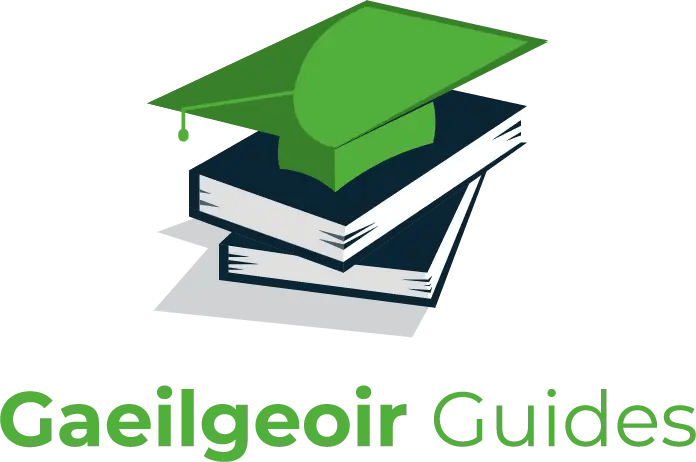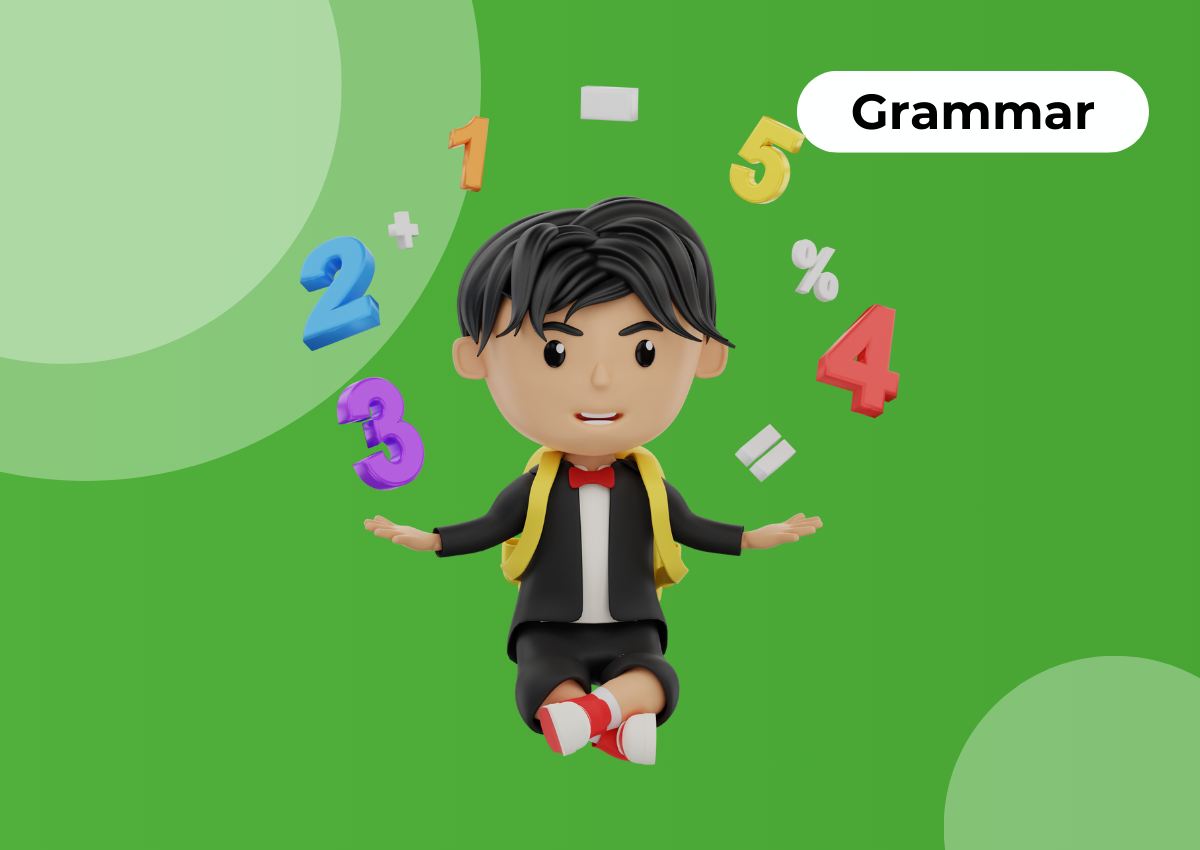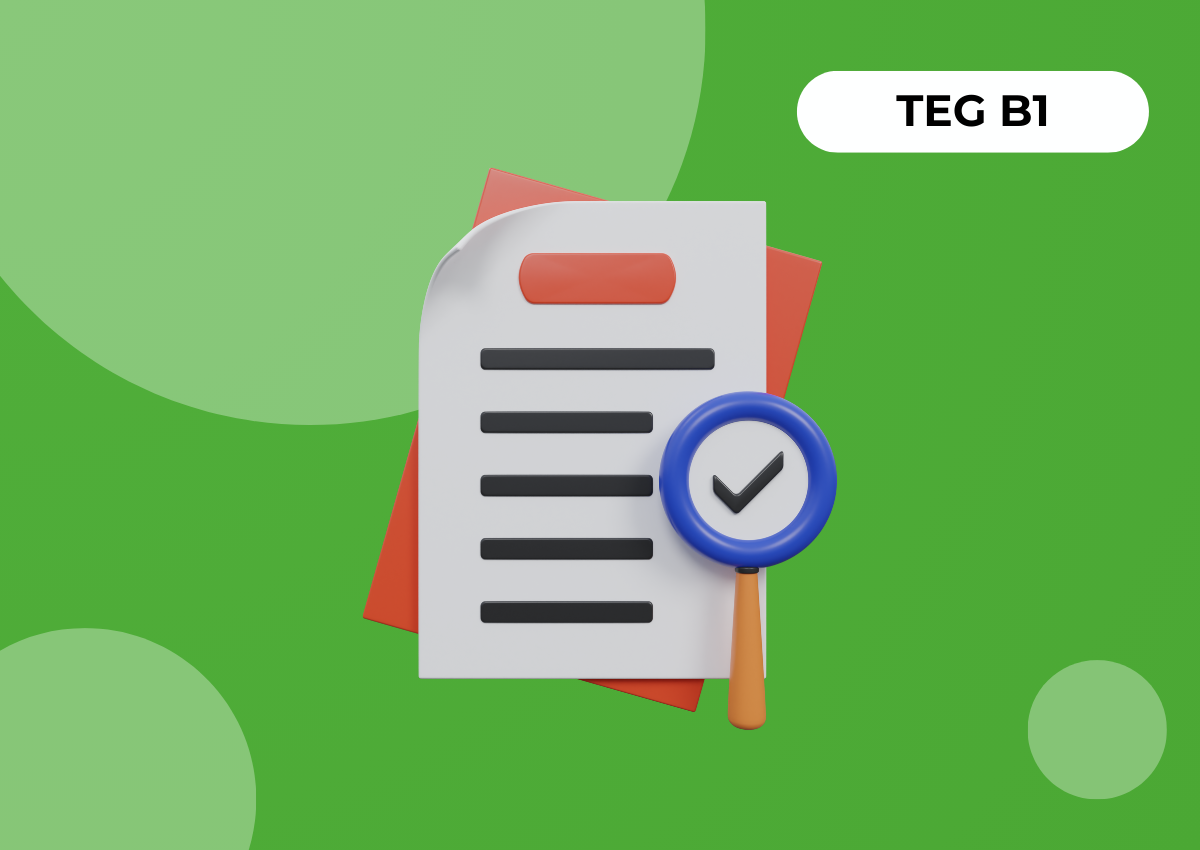1. What Is the TEG B1 Marking Scheme?
The TEG B1 exam is at an intermediate level. It tests how well you can use Irish in everyday conversations and situations. Understanding how the marking scheme works will help you in your preparation. In this guide, we’ll explain how the examiners assess you in the oral component of the exam.
The marking is based on different parts of the language, such as grammar, vocabulary, pronunciation, fluency, and communication skills. Let’s break down each part so you know what to focus on when preparing for the exam.
It’s important to note that the TEG B1 Oral Exam is marked as a whole.
Candidates receive an overall assessment mark and not a calculation of the marks they received in each section.
2. What Language Skills Are Tested?
In the speaking part of the TEG B1 exam, examiners look at five main things:
- Cruinneas gramadaí: Are you using grammar correctly?
- Stór focal: Do you know enough words to talk about everyday topics?
- Foghraíocht: Can you pronounce words clearly?
- Líófacht: How smoothly can you speak without long pauses?
- Cumarsáid: Can you express your ideas clearly and understand others?
These areas help examiners decide how well you can speak Irish.
Cruinneas gramadaí
In the oral exam, you need to show that you can understand and apply grammar rules well. Mistakes are okay, but they shouldn’t stop the conversation from flowing. You’ll be judged on how well you can:
- Use verbs in the correct tense – One of the common mistakes made by candidates in the exam is mixing verb tenses or verb disagreement. For example, bhuail mé le daoine agus bímid ag caint – instead of buaililm le daoine agus bímid ag caint.
- Sentence structure should be clear – At B1 level, candidates are expected to demonstrate their knowledge of the sentence structure and should avoid trying to translate directly from Irish into English. For example, instead of saying taitním an bia, candidates should say taitníonn an bia liom.
- Apply the correct use of numbers – For example, triúr cairde instead of triúr chara; beirt fhear instead of dhá fhear.
Small mistakes are expected at the B1 level but you should have adequate vocabulary to articulate information when talking about everyday topics.
Stór focal
You need to know enough Irish vocabulary to talk about everyday things. The exam tests how easily you can use these words in conversation. Your vocabulary should cover:
- Basic greeting and introduction
- Topics related to yourself such as your family, the home, your area, hobbies and work
- Vocabulary related to recounting a story
If you forget a word, you should try to explain it another way. You won’t lose marks for this as long as you keep the conversation going. You should have appropriate strategies to compensate for gaps in your knowledge. An example could be asking the examiner to repeat something or to use a particular word or phrase to allow themselves more time to think of an answer. Mar shampla; An féidir leat é sin a rá arís/ Tá brón orm, níor thúig me sin.
Foghraíocht
Even if your accent isn’t perfect, your Irish should be clear enough for the examiner to understand. Sometimes, you might pronounce words a bit differently because Irish is not your first language, and that’s okay. What matters at the B1 is that your pronunciation doesn’t stop the examiner from understanding you and does not impact the flow of the conversation.
Líofacht
Fluency means speaking naturally without there being evidence of you producing rote-learnt topics throughout the conversation. The examiner is hoping to find that you can change to a different topic without too much difficulty. At the B1 level, you should be able to:
- Speak smoothly most of the time without too long of a pause
- Maintain consistency by keeping the conversation going
If you stop often or take too long to answer, it could lower your score.
Do NOT learn off large passages and regurgitate them in the oral. This is not good communication.
Cumarsáid
Communication is all about how well you can express yourself and understand others. This is one of the most important parts of the exam. The examiner wants to see that you can respond appropriately to their questions. Remember, if you’re unsure what has been asked of you, you can ask the examiner to repeat the question.
- Understanding questions – This is crucial to ensure that you are engaging in a natural conversation with the examiner
- Expressing your opinion – you need to show to the examiner that you are comfortable enough with the language to create your own ideas using the appropriate tense and sentence structure in your answer
Your response doesn’t have to be perfect, but you should show that you can manage and develop ideas in a conversation.
3. Social language skills
The greeting you give the examiner is the first impression they will have of your level of Irish, so ensure that you are confident in executing this well. Similarly, you want to leave the exam on a high note, using the appropriate language. Also, if you need to ask the examiner to repeat something politely, it is important you do so using the correct phrases.
- Dia dhuit, conas atá tú?/Táim go maith, go raibh maith agat
- Slán leat/Slán go fóill
- Tá brón orm, an féidir leat sin a athrá le do thoil?
These are important parts of speaking a language in real life.
4. Training of Examiners
All examiners are trained to use the same marking system so that every candidate is judged fairly. They are monitored to ensure that they stick to the rules and give marks consistently. In the oral exam, there are two examiners present, one of whom interacts with the candidate, asking questions and directing the conversation. The oral examinations are recorded for monitoring purposes, and also for training and research.
5. How to Prepare?
Our TEG B1 Preparation Course is designed to equip you with the skills and strategies needed to excel in every part of the exam. With targeted practice on grammar, vocabulary, pronunciation, and fluency, you’ll gain the confidence to communicate naturally and effectively in Irish.
FAQs
Q: What kind of grammar should I focus on for the TEG B1 exam?
A: Focus on the basic grammar outlined in the A1-B1 syllabus, such as verb tenses, sentence structure, and noun-adjective agreement.
Q: Is it okay to make mistakes in pronunciation?
A: Yes, as long as your mistakes don’t make it hard for the examiner to understand you.
Q: How important is vocabulary in the exam?
A: Vocabulary is very important. You need a wide enough range to talk about everyday topics without stopping too often.
Q: What happens if I can’t remember a word during the exam?
A: Try to explain the word using other words. This shows you can keep the conversation going, which is key to good communication.
Q: Do I need to speak quickly to score well in fluency?
A: No, pace doesn’t matter but but you should speak smoothly without too many long pauses.
Q: What are social language skills, and why do they matter?
A: Social language skills are how you greet people, say goodbye, or ask for things politely. They’re important because they show you can use the language in real-life situations.
In conclusion, the TEG B1 marking scheme checks your ability to use Irish naturally and effectively. By focusing on grammar, vocabulary, pronunciation, fluency, and communication, you can improve your chances of success in the exam.



